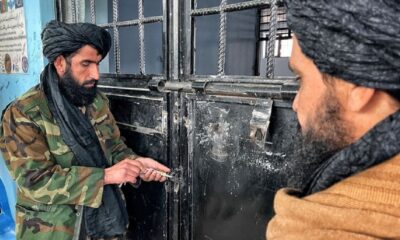Latest News
Peace talks ‘under threat’ as Taliban prepare for major spring offensive
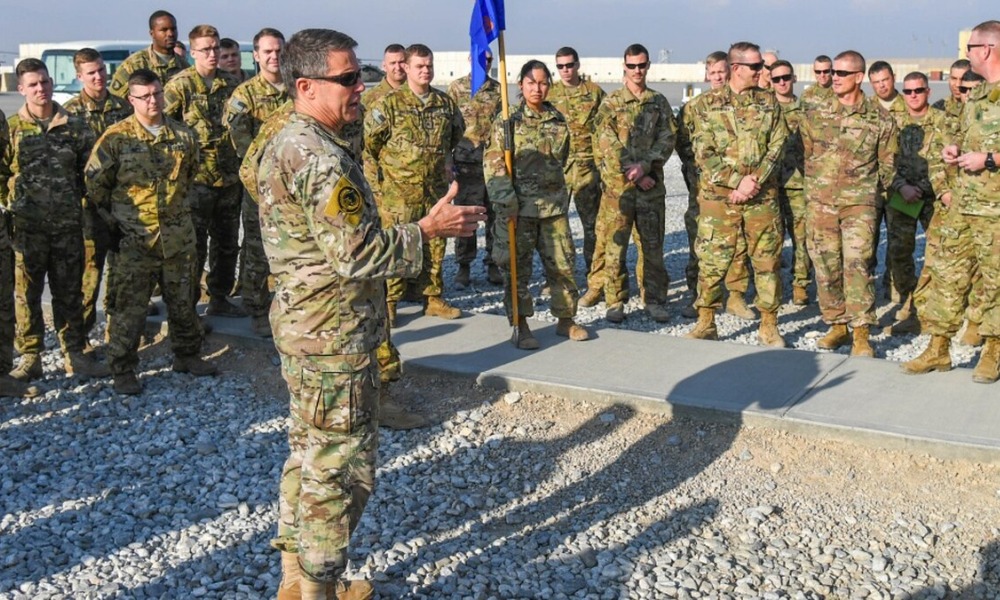
Unusually intense fighting in the winter by Taliban insurgents has spurred Afghan government preparations for more violence in the warmer spring, which international players fear will further endanger the nation’s fragile peace process, Reuters reported.
This comes after a sharp increase in attacks by the group since the signing of the US-Taliban agreement in Doha in February last year.
General Scott Miller, the head of US forces and the NATO-led Resolute Support mission told Reuters that “Taliban violence is much higher than historical norms.”
“It just doesn’t create the conditions to move forward in what is hopefully a historic turning point for Afghanistan,” he said.
Typically fighting quietens down during the snowy winter months before the Taliban launch a “spring offensive” around March. However, this winter, fighting has been intense.
Miller said that the fighting now was an indicator that not only would there be a spring offensive – a move many diplomats view as against the spirit of the Doha agreement – but that it could be more intense than before, Reuters reported.
This also comes as negotiations have largely stalled in Doha in recent weeks and Taliban leaders have left Qatar, a senior state department official said, leading to growing fears that talks could be on the brink of collapse.
“If the violence isn’t reduced, it’s going to make a peace process very, very difficult; it would be very difficult for any side to make the necessary compromises,” Miller said.
The Afghan government has instructed security forces to carry out a comprehensive troop restructuring and design operations to prepare for a “tough and hard” spring offensive, two government sources told Reuters.
They added that Afghanistan’s special forces from different institutions such as the military and police are being streamlined to operate under one command. Highly experienced commanders have been appointed to key areas, and security forces were planning to conduct more airstrikes to avoid losses on the ground.
An Afghan National Security Council spokesman said they were “ready for any kind of war”, though they remained in “active defence” mode.
Four Taliban sources said that most of their commanders had in recent weeks cut short annual training sessions after being called back to the battlefield to prepare for intensive fighting.
Three residents in areas dominated by the Taliban in north-eastern Afghanistan had noticed a pick-up in the group’s activity in recent weeks, telling Reuters they had seen Taliban fighters moving en masse, holding meetings in mosques and beginning food and recruitment drives.
“In the past two weeks the topics Taliban preachers preach, especially on Friday prayers… have changed,” said a tribal elder from Kunduz province who asked not to be named for security reasons. “They preach about… fighting against invasion, and they openly invite people to join them. It’s a clear message that they are preparing for another fight this spring.”
A member of what the Taliban considers its special forces told Reuters that the group was preparing to act when there was an announcement about foreign troops.
“If they don’t leave Afghanistan on the preset date then the USA, NATO and the world will face a dangerous war, a war that never happened in the past 20 years,” he said.
A Taliban spokesman did not reply to a request for comment on the spring offensive.
The administration of US President Joe Biden is reviewing its plans for Afghanistan, including whether to stick to the May 1 deadline in the troop withdrawal agreement former President Trump’s administration signed with the Taliban in February 2020.
Miller said his command recognised that foreign forces could be a target if the Taliban view the deal as breached.
Experts and diplomats see a vanishing window of opportunity for talks to survive, although sides say they are committed negotiating, Reuters reported.
“Talks seem already very close to falling apart,” said Ashley Jackson, co-director of the Centre for the Study of Armed Groups at the Overseas Development Institute. “The trouble is that (Washington) seems to grossly underestimate just how bad things could get and how quickly that could happen.”
Latest News
Khalilzad: Another US citizen to be released from Afghan custody soon
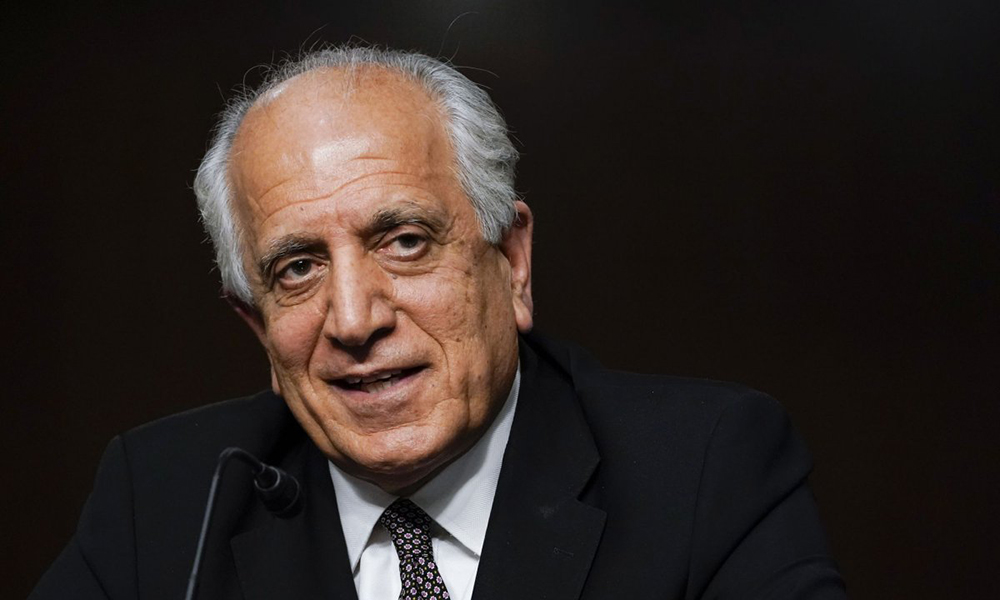
Zalmay Khalilzad, the former U.S. Special Representative for Afghanistan, has announced the release of another American citizen in the country.
Khalilzad said in a post on his X account that, according to information from the Islamic Emirate’s Ministry of Foreign Affairs, Faye Dai Hall, an American citizen who has been in custody in Afghanistan, will be released soon.
Earlier, George Glezmann, an American citizen whom the Islamic Emirate had held for over two years, was also released.
Latest News
About $80 billion worth of US military equipment abandoned in Afghanistan: Vance

US Vice President JD Vance said on Friday that Joe Biden administration left about $80 billion worth of military equipment in Afghanistan, which was a “catastrophic error.”
Vance made the remarks during a visit to a military base in Greenland.
He also said the Biden administration’s “catastrophic error” led to the deaths of 13 US soldiers in an attack during the evacuation at Kabul airport in August 2021.
Earlier, US President Donald Trump also criticized the abandonment of military equipment in Afghanistan and called for its return.
The Islamic Emirate, however, has said that the weapons left by the US in Afghanistan belong to the Afghans and will not be returned.
Latest News
IEA frees over 2,400 prisoners on the occasion of Eid
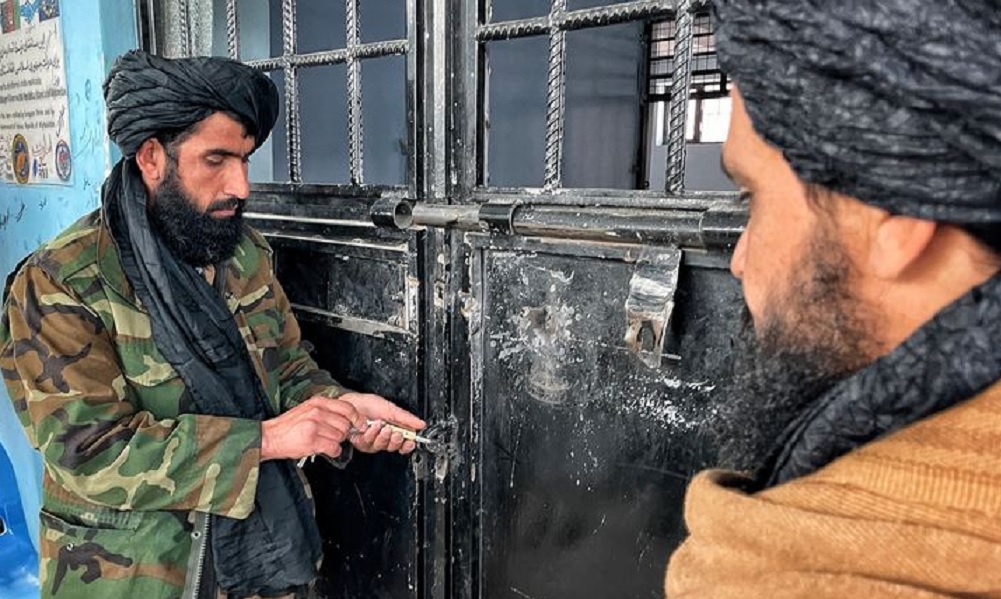
The Supreme Court announced on Saturday that based on the ruling of the supreme leader of the Islamic Emirate, 2,463 prisoners have been pardoned and released on the occasion of Eid al-Fitr.
The court said in a statement that the prison terms of another 3,152 prisoners have been reduced.
Eid in Afghanistan will be celebrated on Sunday or Monday, depending on the moon sighting.
-

 International Sports4 days ago
International Sports4 days agoIPL 2025: Last over drama; Ashutosh Sharma clinches win for Delhi Capitals
-
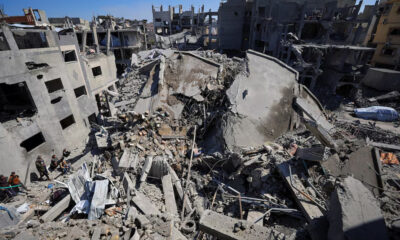
 Regional5 days ago
Regional5 days agoEgypt makes new proposal to restore Gaza truce as Israeli strikes kill 65
-

 Sport4 days ago
Sport4 days agoAfghanistan eliminated from Asian Beach Soccer Championship
-
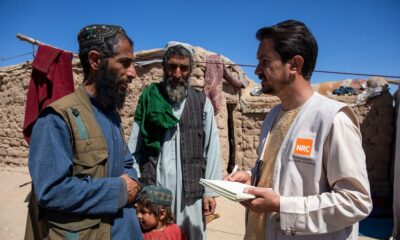
 Latest News4 days ago
Latest News4 days agoNorwegian Refugee Council cuts back on essential humanitarian services in Afghanistan
-
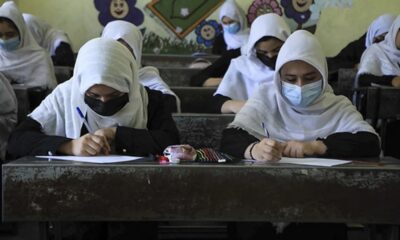
 Latest News4 days ago
Latest News4 days agoUN warns over 4 million Afghan girls will be deprived of education by 2030 if ban continues
-

 World4 days ago
World4 days agoSecretive Chinese network tries to lure fired US federal workers, research shows
-
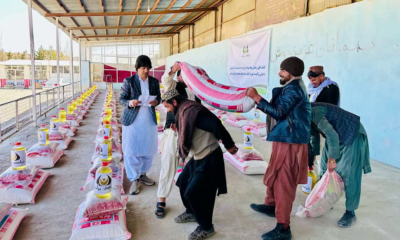
 Latest News4 days ago
Latest News4 days agoDozens of needy families in Ghazni get much needed food aid from Bayat Foundation
-

 Sport4 days ago
Sport4 days agoAFC Asian Cup 2027 Qualifiers: Myanmar defeat Afghanistan 2-1








